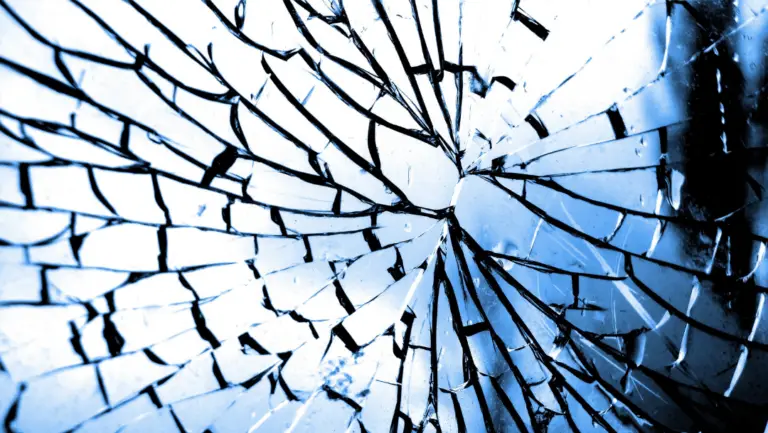
Embracing Sustainability: Rethinking Heat Soak Testing’s Environmental Impact
During the meticulous manufacturing process of raw glass, even the tiniest impurities, such as Nickel Sulphide, may silently find their way into the final product.
Though seemingly harmless, these inconspicuous “seeds” hold the potential to cause catastrophic spontaneous fractures in toughened glass items, presenting serious safety concerns.
To address this critical challenge, the longstanding solution has been the utilisation of Heat Soak Testing – a controlled heat cycle applied to finished products to stimulate the growth of these seeds. While this destructive testing method reduces future instances, it comes at a considerable cost in terms of energy consumption.
As Performance Glass Processing (PGP) embraces its mission to transform the glass industry through sustainable practices, understanding the environmental implications of conventional testing methods is vital. Let us delve into an enlightening statistic that unveils the carbon footprint associated with a year’s worth of daily heat soak testing cycles.
The Carbon Footprint Dilemma
To comprehend the substantial environmental impact of daily heat soak testing, PGP has looked at energy consumption over the course of a standard working year for a business of our size. By considering the UK’s average carbon intensity for grid electricity (as of September 2021), estimated at approximately 0.233 kg CO2 per kilowatt-hour (kg CO2/kWh), we gain insight into the magnitude of carbon emissions resulting from this practice.
Calculating Electricity Consumption
Taking into account a daily electricity consumption of £180 (for heat soak testing) and an average electricity cost of £0.32/kWh, the staggering daily usage adds up to 562.5 kWh. Scaling this consumption to encompass five working days per week, the weekly total reaches 2,812.5 kWh. Extrapolating this data to span a full year, the accumulated energy consumption for daily heat soak testing totals an astonishing 146,250 kWh of electricity.
Revealing the Carbon Emissions
Multiplying the annual electricity consumption (146,250 kWh) by the UK’s average carbon intensity (0.233 kg CO2/kWh), we arrive at an eye-opening revelation – approximately 34.07 tonnes of CO2 would be released into the atmosphere each year just for one company such as ours. This figure serves as a compelling reminder of the considerable environmental impact stemming from conventional testing practices.
Unveiling the Trees’ Equivalence to clean up the CO2
To add a tangible perspective to these carbon emissions, we explore the equivalent carbon absorption capacity of trees. Based on an average tree’s ability to absorb 22 kilograms of CO2 annually, we can calculate its equivalence. Dividing the total emissions (34.07 tonnes CO2) by the annual CO2 absorption rate per tree (22 kg CO2/year), the heat soak testing process is equivalent to the carbon absorption capacity of a remarkable 1,548.64 trees over the course of a year (for a business our size).
Pioneering a Greener Path
Acknowledging the pressing need for sustainable practices, PGP stands committed to leading the industry towards a greener future. The innovative Heat Soak Policy adopted by PGP exemplifies this dedication. By pushing for glass products with a thickness of 6mm or less to be except from heat soak testing, PGP actively minimises unnecessary energy consumption and reduces its carbon footprint.
A Collaborative Pursuit
As PGP sets out to revolutionise the glass industry, collaboration with like-minded professionals is essential. Engaging in constructive dialogues, sharing best practices, and embracing innovative approaches, the industry can collectively mitigate its environmental impact. Together, we can forge a sustainable and responsible glass manufacturing ecosystem.
Conclusion
The statistics unequivocally underline the significance of embracing sustainable practices in the glass industry. Conventional heat soak testing carries a considerable carbon burden, emphasising the urgent need for alternative approaches. Among these, exploring other equivalents to conventional testing methods becomes imperative, as they can potentially mitigate negative impacts on the environment.
This demands a collective reevaluation of our testing methods and a commitment to choosing the best glass production practices that align with eco-friendly principles. In doing so, we must steer clear of opting for cheap imports that often come with hidden environmental costs.
It’s essential to recognise that although adopting these sustainable alternatives might take longer to manufacture, the long-term benefits for both our planet and our industry are undeniable. Additionally, optimising heat cycles specifically for thicker glasses offers a promising avenue to reduce energy consumption and further enhance the environmental sustainability of our processes.
As PGP takes the helm in this transformative journey, our company not only pioneers innovation but also showcases that product excellence and environmental preservation can seamlessly coexist. As we embark together on this path towards a brighter, greener future, let us inspire positive change and through our collective efforts, leave a lasting legacy for generations to come.
